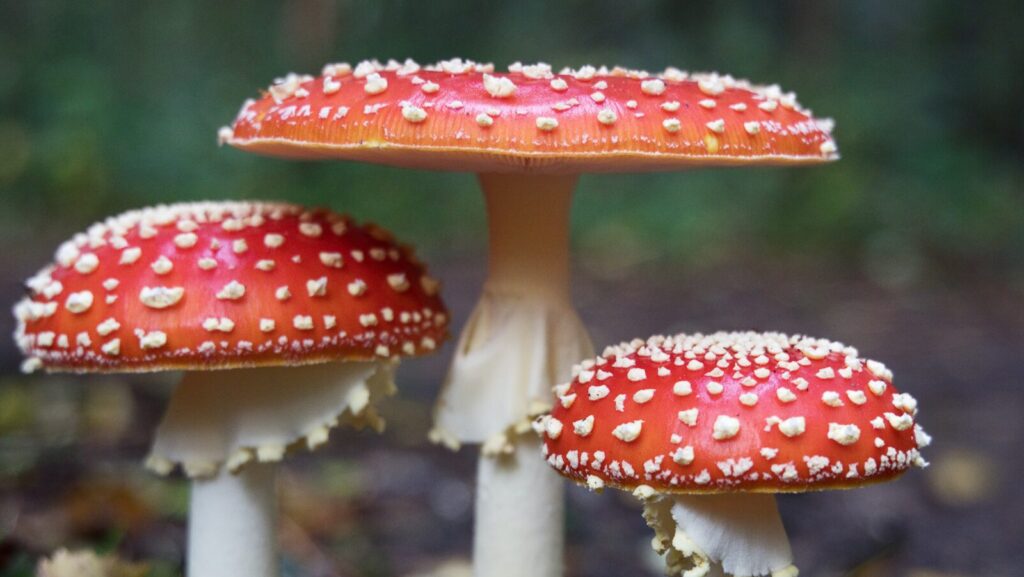Faye Minton
Australia has become the first country to prescribe the recreational substances MDMA and psilocybin as treatments for mental health conditions.
Tried and tested
From 1 July, psychiatrists will be permitted to prescribe the drugs to patients diagnosed with mental health conditions including depression and post-traumatic stress disorder (PTSD).
MDMA, also known as ecstasy, is often labelled a ‘party drug’ for invoking feelings of immense joy and excitement. Psilocybin is an ingredient in magic mushrooms which is known to cause hallucinations.
In recent decades, psychiatrists have investigated whether small amounts of these recreational substances could be prescribed to treat mental health patients. Many of these studies have been successful, particularly for PTSD patients treated with MDMA. For anxiety, anorexia, and substance-addicted patients, positive results have also been recorded.
Microdosing
Drug users have adopted this practice outside of the lab, too. Microdosing, the act of taking very small amounts of a drug on a regular basis, first emerged as a trend during the 1960s ‘hippy’ movement when psychedelics became more widely available.
“to ‘move from a place of anxiety to a normal state of confidence'”
The aim of microdosing is not to feel high. Instead, users seek to experience the desirable benefits of the substance without feeling too intoxicated to participate in everyday activities.
In recent years, social media movements and online advice forums have attempted to further normalise microdosing. People from all walks of life now openly discuss its positive impact.
A 2019 investigation by The Guardian discovered that an increasing number of people were microdosing in the UK. One woman confessed that she took minuscule doses of psychedelics throughout the day to “move from a place of anxiety to a normal state of confidence”.
Due to these results, some countries including the USA, Canada, Switzerland and Israel have trialled compassionate use of the substances for mental health patients.
Australia, though, is the first to incorporate them into national healthcare policy.
Inaccessibility
However, the introduction of MDMA and psilocybin prescriptions will not make the substances easily accessible to all.
Psychiatrists wishing to prescribe the substances must first apply for ethical clearance and dispensary approval from the Therapeutic Goods Administration (TGA), Australia’s drug regulator.
“five-figure treatments”
One of the key lobbyists for the treatments, the non-profit organisation Mind Medicine Australia (MMA), will be on hand to train and advise healthcare professionals looking to prescribe these drugs.
But despite MMA’s charitable involvement, the drugs are predicted to be too costly for most patients. After consulting Australian healthcare professionals, the BBC estimated that they would be “five-figure treatments”.
“Not for everybody”
Australia’s decision has not gone without criticism from professionals.
Professor Susan Rossell is a Melbourne-based psychiatrist. She is currently trialling psilocybin-assisted psychotherapy for depressed patients.
Rossell is concerned that, while the benefits of MDMA and psilocybin have been clear in some patients, they may not be a solution for everyone.
“it’s not a miracle cure.”
According to Nature, Rossell’s research has found that 10-20% of patients trialling these substances have a “really terrible time”, experiencing bad trips which could worsen rather than improve their conditions in the long term.
She told Nature: “It’s not for everybody. We need to work out who these people are that are going to have bad experiences, and not recommend it.”
Professor Richard Harvey, chair of the RANZCP’s Psychedelic-Assisted Therapy Steering Group, expressed similar thoughts to the BBC.
He said: “Psychedelic-assisted therapy may offer hope to a small number of people where other treatments have been attempted without success. But it’s not a miracle cure.
“Vulnerable people can understandably feel distressed if their experience doesn’t match their expectations of this therapy.”
Read next:
-
PAINTING A PICTURE OF ADDICTION
-
HAEMOCHROMATOSIS: WHEN BLOOD DONATION IS JUST WHAT THE DOCTOR ORDERED
-
HAVE WE REALLY REMOVED THE STIGMA AROUND MEN’S MENTAL HEALTH
Featured image courtesy of Hans Veth on Unsplash. No changes have been made to this image. Image license found here.

